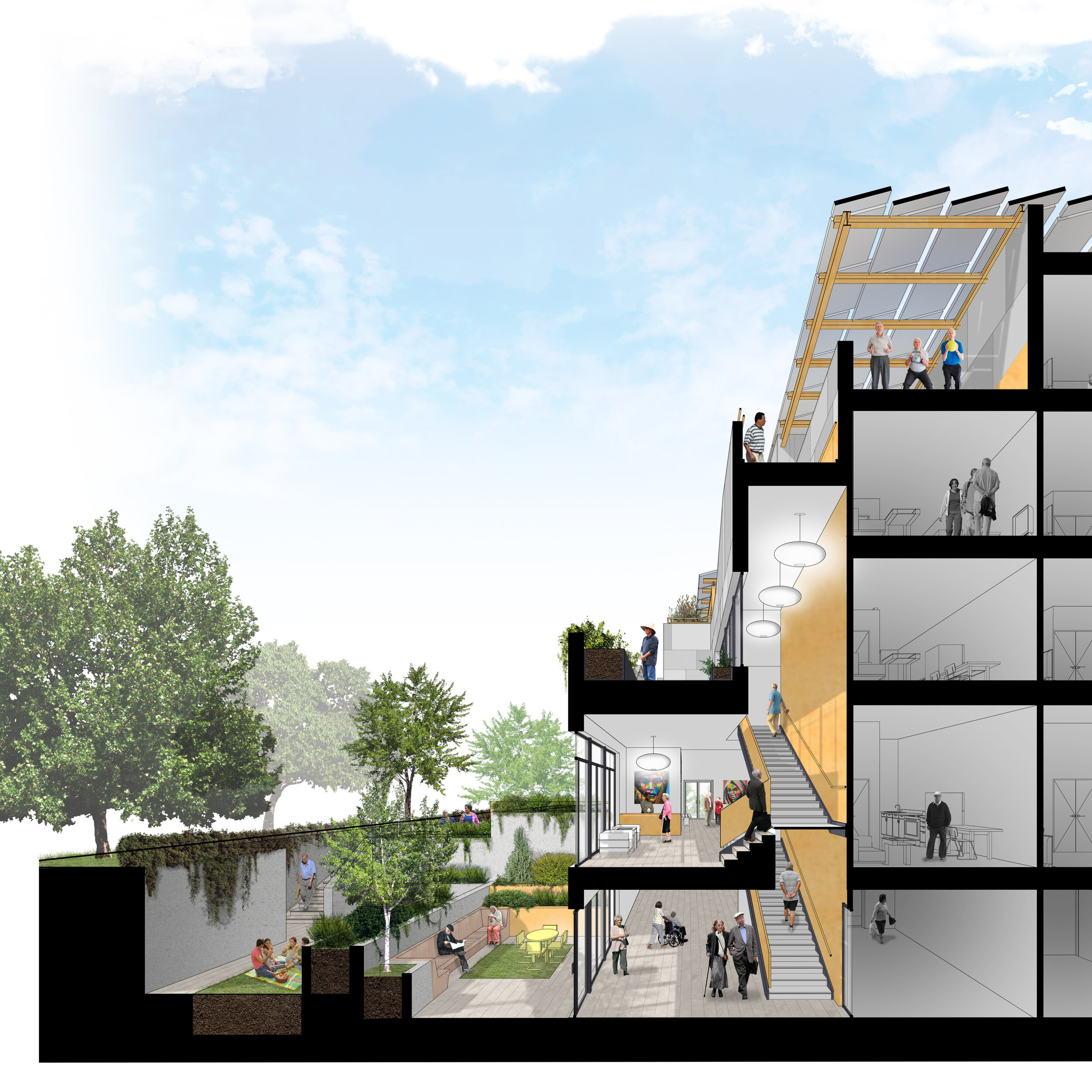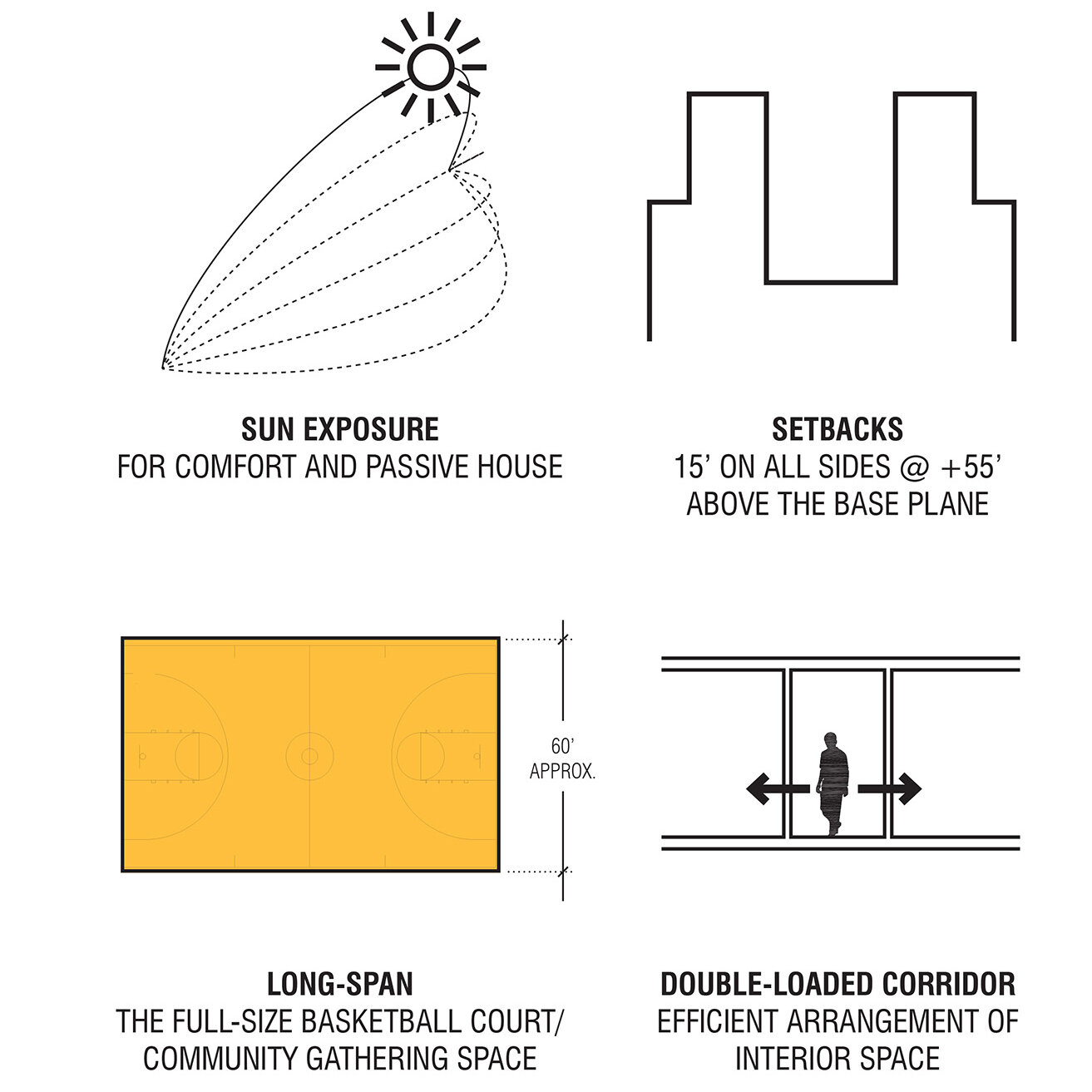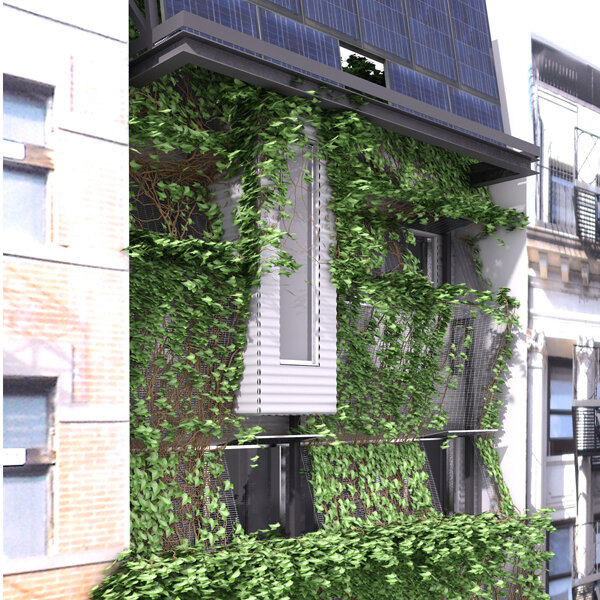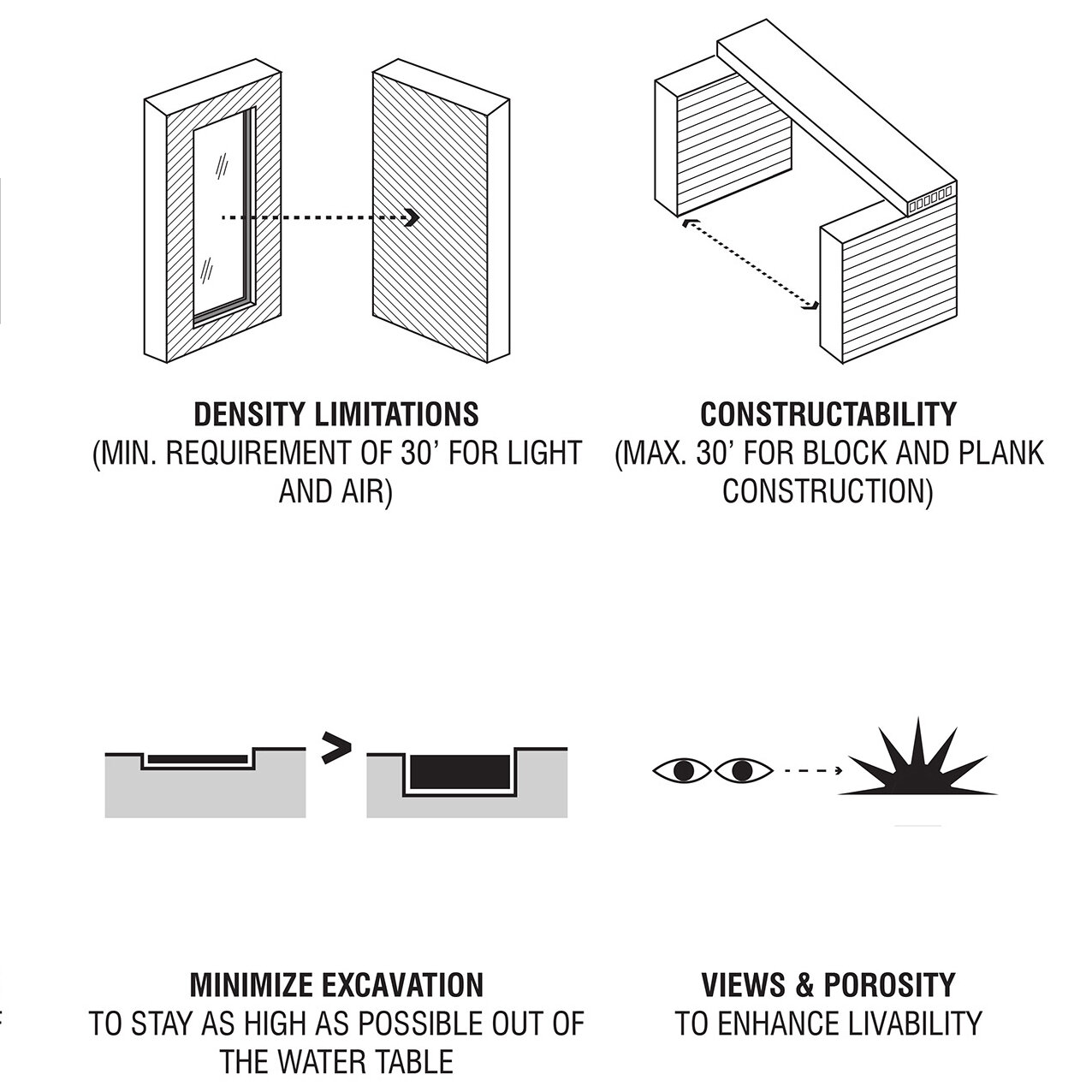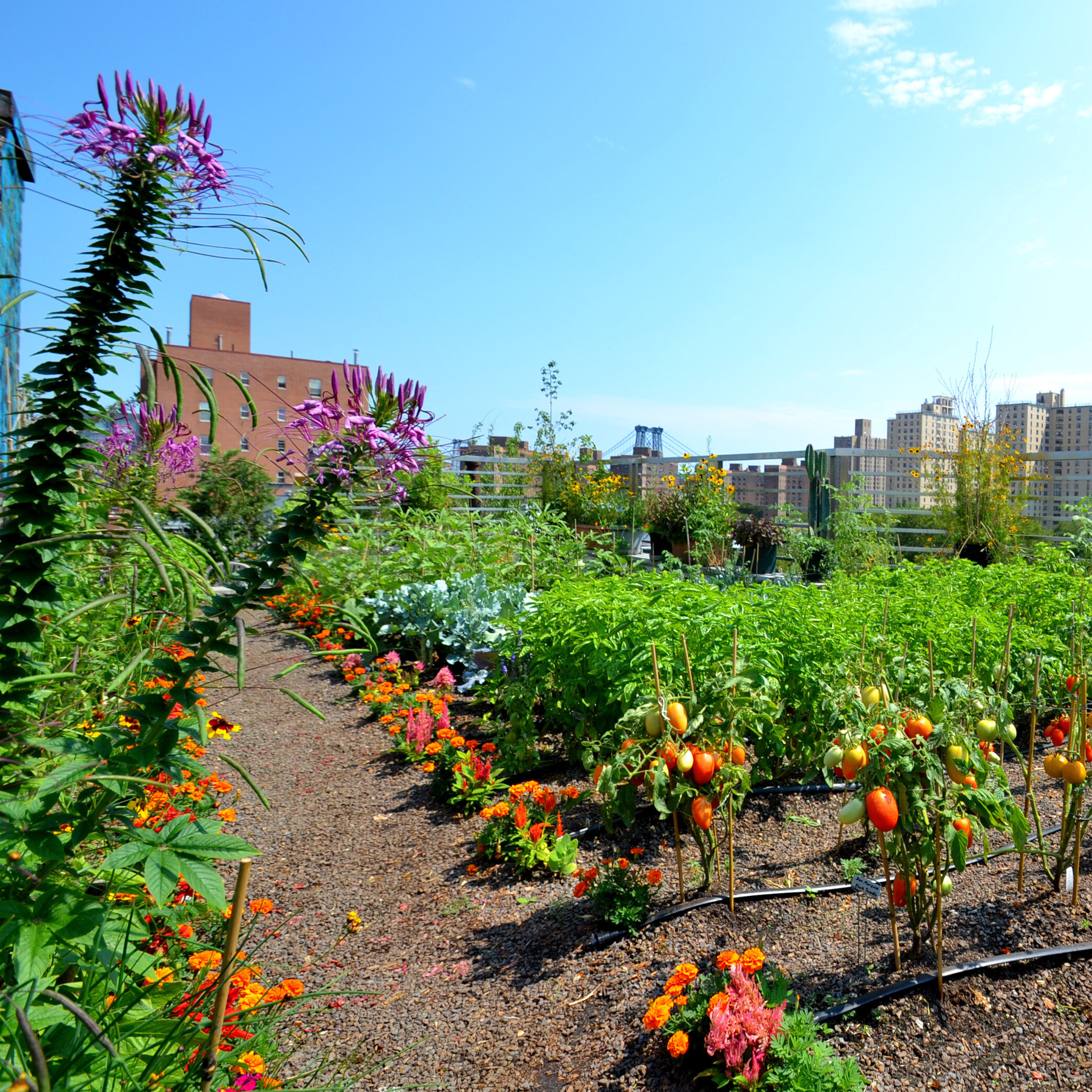ARCHITECTURE for all
HOLISTIC SUSTAINABILITY: NET ZERO AND THE URBAN ECOLOGY
functionality, environment, and social placemaking
We believe that architecture is more than a commodity of privilege. Great design engages the entire community not only as completed work, but as the result of an inclusive process that invests stakeholders in project success and builds on the expertise of lived experience.
Seeking equity in the creation of public spaces provides value for all stakeholders. Design is an act of problem solving, and more precisely, a purposeful act of discovering the true nature of the problem. By hearing the voices of more stakeholders – especially those voices who know their community and its needs most acutely – we refine our understanding of the design problem. With this understanding as our foundation, we invest our design and construction resources in solutions that create a legacy of pride and connection in the community.
PCA’s work is always informed by the environment, at the building and at the city level. As NYC pioneers in Passive House implementation, our in-house energy modeling and design team are industry leaders in the path to cost-effective, healthy, comfortable Net Zero Energy and Carbon buildings. As architects deeply connected to our community, we also understand that buildings are small interventions that have the power to incrementally improve the larger urban infrastructure towards a healthier, more resilient city.
Our team has more than a decade of Passive House experience in New York City, and are leaders in using the methodology as a springboard for Net Zero Energy and Net Zero Carbon buildings. We designed NYC’s first completed building to be certified both Passive House and Net Zero, and are currently working on more than a dozen Passive House + Renewables (solar panel) buildings throughout the city. Layered onto this design approach is a commitment to significant reductions in embodied carbon use, through thoughtful system and material selection and by advocating for the re-use of existing structures.
Within each individual project, we are strident advocates for reducing energy, carbon and water use and in improving occupant health and comfort. But we also understand that this effort does not end at the building walls. Buildings are part of an urban ecology – both metaphorically and literally – and a successful building can demonstrate how our built environment can enhance the ecological, urban, and social systems of which it is a part.
The result is an architecture where sustainability is fully integrated into the process and architectural expression. We seek to create buildings that not only reduce the resource burden we place on the urban infrastructure, but which actively improve the local environment and daily experience of the community (through energy creation, water management, and creation of spaces for social connection).
Our firm has a modern approach to design, which is driven by our ambitious social and sustainability goals and commitment to pragmatic problem solving. Our aesthetic can best be characterized as ‘elegant functionalism.’ Exploring light, spatiality, natural forces and materials, we strive to create simple, yet dynamic, spaces.
Our buildings are designed for today’s needs, but with an eye on future generations. Good architecture must not only be durable, but also adaptable and resilient. In this way, we strive to create buildings that provide a unique and memorable sense of place, while being functionally flexible to adapt to future use and social patterns.
Ultimately, we recognize the importance of our role as stewards of our clients’ vision and significant investments. A successful project is delivered on time and within budget, and delivers a long-lasting addition to the urban fabric that engages and delights its users and is a source of pride for the community and the city.
